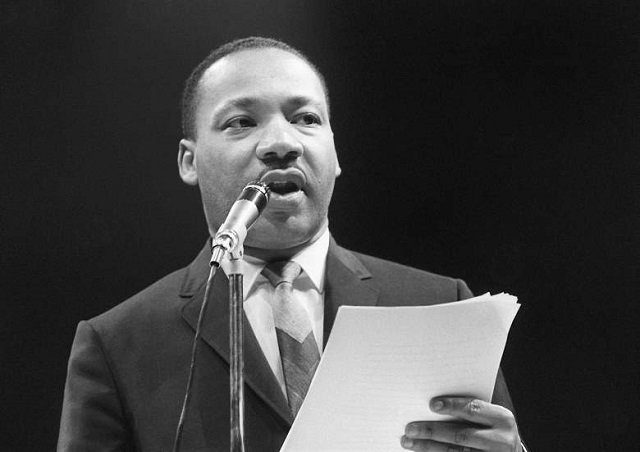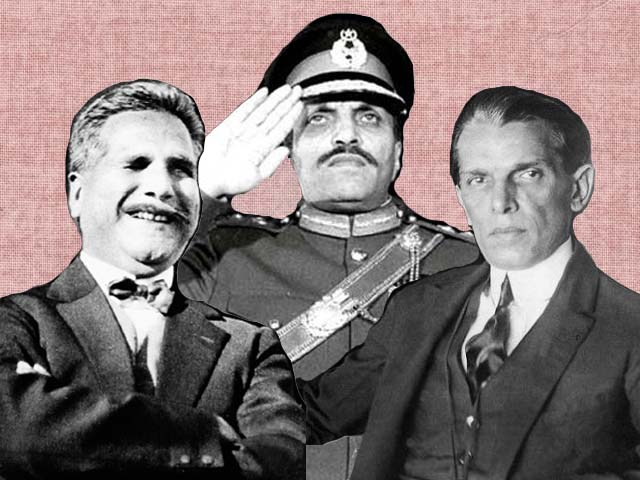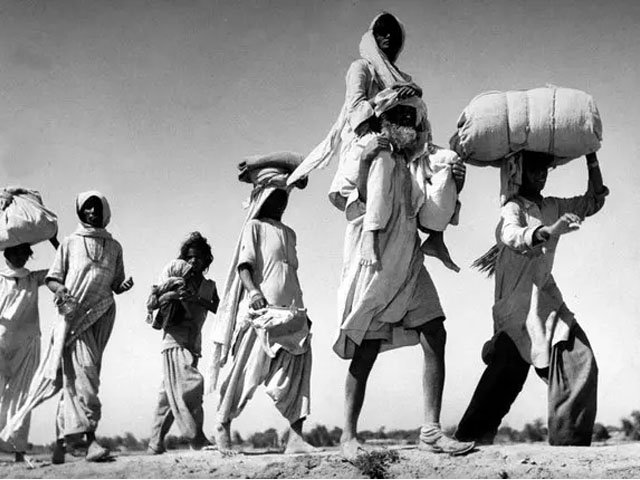
Martin Luther King Jr during a speech. PHOTO AFP
Remembering Martin Luther King on his death anniversary
So I ask again, how would King see the world? I have a feeling he’d be heartbroken, although he may not be surprised
Dr Martin Luther King Jr remains frozen in time for anyone who has followed the Civil Right Movement. In all likelihood, people remember him as the man who challenged Southern segregation. Even if, by any chance, if people do not remember that, they definitively remember him standing before hundreds of thousands of followers in Washington DC in 1963, proclaiming his dream for racial harmony,
“I have a dream that one day every valley shall be exalted, every hill and mountain shall be made low, the rough places will be made plain, and the crooked places will be made straight, and the glory of the Lord shall be revealed, and all flesh shall see it together.”
Many probably also recall him marching, alongside fellow protesters, through the battleground of Alabama in 1965. To reiterate, the Selma to Montgomery march was part of a series of civil-rights protests that occurred in 1965 in Alabama, a Southern state with deep-rooted racist policies. The purpose of the 54-mile route was to register black voters in the South of (Northern) America. His campaigns in white neighborhoods (in northern parts of the US) would get backlash from leaders and residents who supported similar tactics in the south. King’s call for an interracial coalition to demand “jobs or income now” was greeted skeptically, even by some of his own supporters – who doubted the wisdom behind his plan to mobilise a poor people’s campaign.
But on the 52nd anniversary of his death, it is worth noting how his message has evolved since the time he was shot on that balcony at the Lorraine Motel in Memphis in 1968. Although his “dream” was directed to a certain section of the United States of America of his time, the same still resonates with masses today and ironically transcends the very geographical borders that he had originally targeted.
He was battling racism across the entirety of the United States and was advocating the government to address universal issues that encompassed poverty, income inequality, structural racism and segregation in cities like Boston and Chicago. People may not be familiar with this facet of King’s struggle. Yet, his words reverberate very powerfully – and, hopefully, uncomfortably – today in a world that remains deeply divided on issues of race and class.
What would King make of the world, today? April 4, 2020 mark 52 years since the assassination of Dr Martin Luther King's death. He envisioned a society, in which race would not regulate how people were treated nor how they should live their lives. His legacy underlies a range of everlasting social causes that addressed civil and human rights for the worlds’ most marginalised and oppressed populations. King defined a "beloved community" as a place devoid of injustice and a society that actively promotes a culture of love, justice, and humanity across all legal, civic, religious, spiritual, and moral spheres of life.
So I ask again, how would King see the world? I have a feeling that he’d be heartbroken, although he may not be surprised, to see how in our attempts to be “politically correct”, so many people seem to think it’s okay to harbour and express abhorrent ideas. Had he been around, I am sure he’d cringe at certain countries being called shitholes, when presented with proposals addressing reformation of the national immigration policy. He would certainly be mortified at the extent of violence in the world, much of it religiously motivated; and would condemn the extent and intensity of faith-based bigotry that so many of us deal with, in today’s day and age. Thing is, if he were alive today, he would see a world plagued by many of the problems he had urged Americans (of his time) to focus on during the last years of his life.
We live in an era, where bullying doesn’t just happen in schools but comes from multiple seats of power and is embraced on news networks. We live in an era when racism is explicit and ethnic cleansing is a very real part of our national census. We live in an era where the winds of hate blow across the globe as the very earth itself is under attack.
But on an entirely separate tangent, if King were alive today, he would in one way or another, see the imprint of his life’s work around him. He would marvel at the expansion of rights for women and would surely support #blacklivesmatter and #metoo movements. And for each of these causes, I have a feeling that King would tell us to keep the faith and not to give up. He would tell us to nourish a community of people of all backgrounds who believe in justice. And, above all, to do whatever we can to keep our hearts engaged. Because, in all honesty, having the strength to love is entirely affirmative of our humanity. Even though it was in 1957, when standing in Montgomery, Alabama he said, “Life’s most persistent and urgent question is, ‘What are you doing for others?, it still rings true today and is a question we should be regularly asking ourselves.
Of late this question has become even more important, especially given the recent spread of COVID-19. Being socially distance and in self imposed quarantine is the need of the hour today and it makes complete sense, since the virus travels from person to person. Thing is, we’re all in this together. And the least we can do our best to save each other, whether by socially distancing and flattening the curve or by donating to causes to help those in need during the pandemic. Because you see, King got it right when he preached on Easter Sunday in 1958,
“Hate begets hate; violence begets violence; toughness begets a greater toughness. We must meet the forces of hate with the power of love.”




COMMENTS
Comments are moderated and generally will be posted if they are on-topic and not abusive.
For more information, please see our Comments FAQ